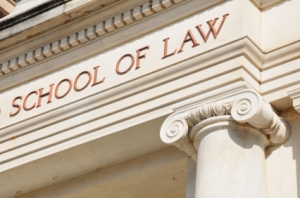 What is your law school’s bar-passage rate?
What is your law school’s bar-passage rate?
If you’ve been out of school more than a few years, you probably don’t track that kind of data. But what would you guess? 75 percent? 80 percent? Even better?
What if you discovered your school’s bar failure rate was 93 percent?
I know; my jaw dropped too.
You may have seen this story via the ABA Journal, which reported on a lawsuit in which the Southern California Institute of Law (its real name) sued over the California Bar’s requirement that the school divulge its bar-passage rate for the past 10 exams (required of all California-accredited schools).
(Sidebar: On its website, the school says that Ninth Circuit Chief Judge Alex Kozinski was its 2013 commencement speaker. Can anyone report what he said in his address?)
I had to smirk when I read about the school’s attempt to claim a First Amendment violation:
“The school claims it is being forced to publish a government message with which it disagrees, violating its free speech rights. The school says it disagrees with the ‘ideological belief that a law school should be judged by the passage rates of its graduates.’”
Very high-minded of them.
I think any lawyer who has ever practiced for even a day may agree that there is not a direct correlation between law school classes and successful practice, or even (necessarily) between the bar exam and practice (except, of course, that you need to pass the exam to practice).
But in an age of law school transparency efforts (like this one), prospective law students (read consumers) deserve as much information as possible. As alumni from even highly performing schools graduate and face bleak job prospects, a school’s impish insistence on its own free-speech rights is almost insulting.
And no, despite questions some folks have raised, the school’s lawyer is not one of its own graduates (which could have been problematic on UPL grounds). But I was pleased to see that George Shohet offices right in Venice Beach, where I recently visited; I should have stopped in to visit the Loyola Law School grad, who was admitted in California the same year I was. (I pointed out here how cool a Venice law office could be.)
Thanks to Above the Law for providing a link directly to the judge’s order denying the relief the school sought. You can read what ATL calls a judicial “smackdown” here. (And you’ve got to love the caption, which ends with the names of the defendant Bar examiners: “Southern California Institute of Law v. Archie ‘Joe’ Biggers et al.”)
Where do you come down on the issue? It may be a no-brainer that a school cannot hide this information. But when it comes down to it, what data really mean something to you when you consider a lawyer’s credentials?
Follow @azatty
Leave a comment